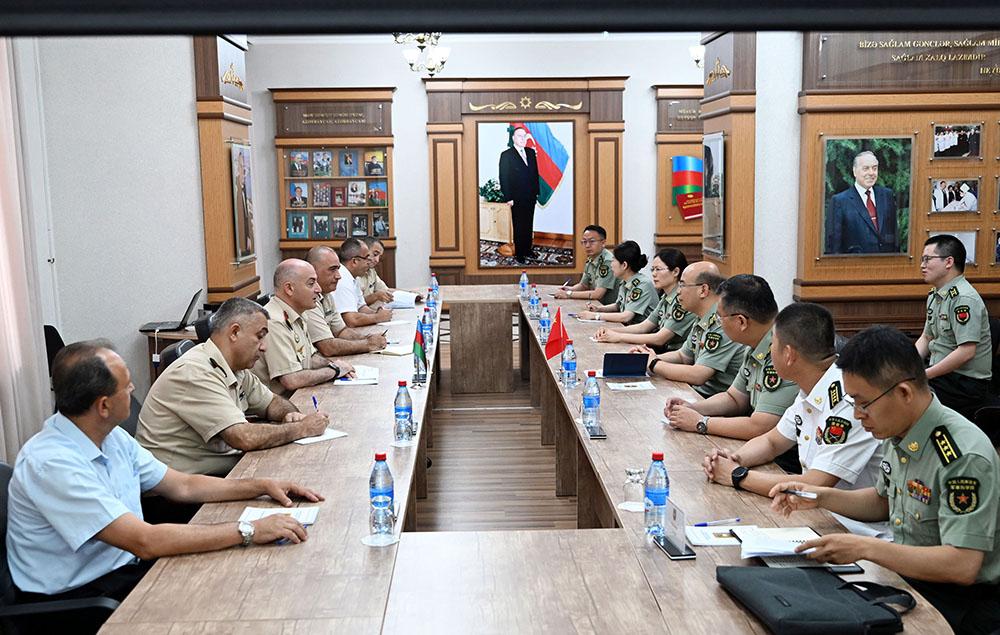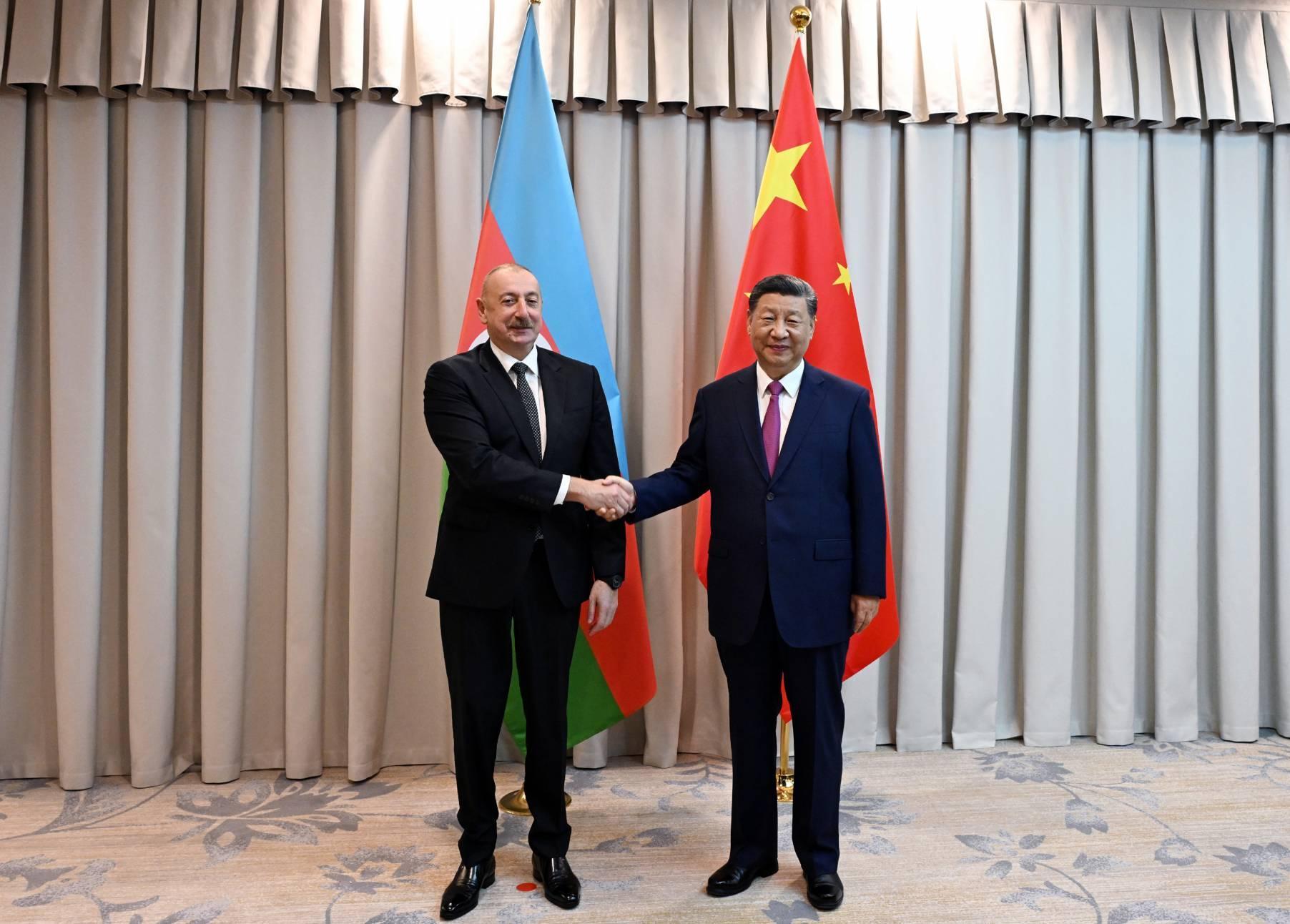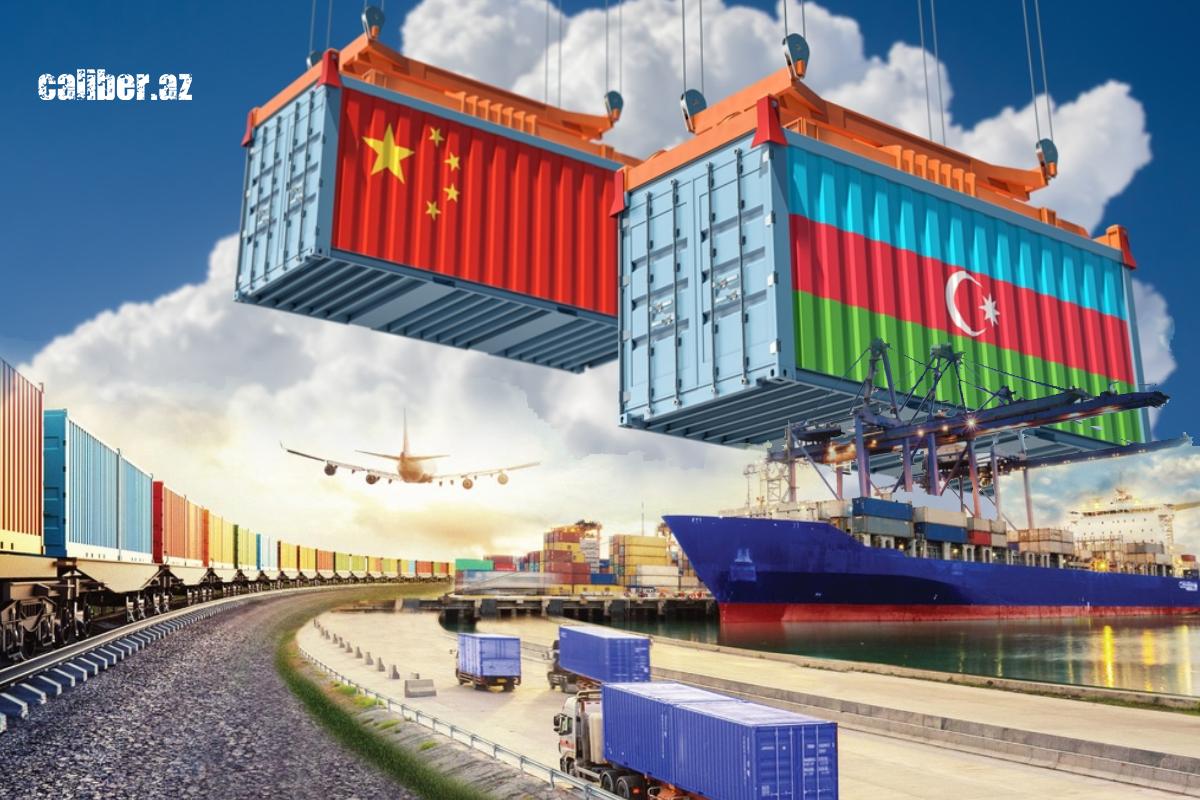Azerbaijan-China: Uniting for new era of strategic growth Building bridges from trade to defence
The evolving global economy is driving post-Soviet states to forge new regional alliances centred around trade, economic, and transport integration. Azerbaijan is at the forefront of this trend, actively engaging with regional organizations like the Organisation of Turkic States (OTS) and the Economic Cooperation Organisation (ECO), while also seeking an enhanced role in the Shanghai Cooperation Organisation (SCO). This proactive approach aligns with Baku’s broader strategy of deepening ties with Beijing, as evidenced by the recent signing of the Declaration on Strategic Partnership and increased involvement in the Belt and Road (B&R) initiatives.
Historically, Azerbaijan and China have maintained a strong, friendly relationship. In recent years, this bond has evolved into a close partnership characterized by mutual respect for sovereignty and territorial integrity, as well as support on the international stage. Building on this foundation, both nations are now accelerating collaboration in trade, industry, transport, high technology, and green energy.
Additionally, the two countries are expanding their partnership into the realm of military education. This is highlighted by a recent visit from the Academy of Military Sciences of the People's Liberation Army of China to the National Defence University in Baku, marking a new dimension in their strategic cooperation.

The evolving dynamics in Azerbaijani-Chinese relations underscore a significant elevation to a strategic partnership. On July 3, during the SCO summit in Astana, Azerbaijan and China formalized their alliance with a joint declaration establishing a strategic partnership. This agreement highlights their commitment to enhancing cooperation across political, economic, and cultural domains, while also strengthening collaboration in international matters. The declaration emphasizes the two nations' dedication to protecting shared interests and advancing regional and global peace, stability, and development.
According to the declaration, Azerbaijan and China view each other as key, reliable partners. They have agreed to independently shape their bilateral relations, unaffected by external influences, marking a new chapter in their strategic collaboration.
"The modern Chinese foreign policy paradigm emphasizes mutually beneficial relationships, often termed 'win-win' scenarios. This approach is evident in the various partnerships China forges, reflecting a commitment to dialogue, development, and pragmatic benefits," noted Vladimir Nezhdanov, an expert from the Institute of Actual International Problems (IAMP) at the Diplomatic Academy of the Russian Foreign Ministry, while discussing the evolving Baku-Beijing partnership.
Indeed, the term "mutually beneficial and promising" aptly describes the rapidly advancing Azerbaijani-Chinese relations. Azerbaijan stands as China's largest trade partner in the South Caucasus, accounting for nearly 45 per cent of the region's trade with China. Following the pandemic, trade and economic ties between Azerbaijan and China have surged, surpassing pre-crisis levels. In 2023, trade between the two nations soared by 44 per cent, reaching a record $3.1 billion. China is now the fourth-largest foreign trade partner of Azerbaijan and the second-largest source of imports.

Significantly, Azerbaijani exports to China saw a 40 per cent increase last year. This growth includes a diverse range of products, from petroleum coke and jet fuel to virgin polyethene and other petrochemicals. Additionally, Azerbaijan is expanding its exports of food and wine products, cotton fibre, perfumes, and industrial equipment and components to the Chinese market.
To expand the presence of non-oil products under the "Made in Azerbaijan" brand in the expansive Chinese market, the Export and Investment Promotion Agency (AZPROMO) has spearheaded the establishment of an extensive network of trade and wine houses across China. Azerbaijani trading houses are now operational in cities including Qingdao, Chengdu, Xi'an, Zhangjiajie, and will open in Nanjing in May 2024. Additionally, Azerbaijani branches have been set up in Shanghai, Harbin, Jinan, and Wuhan, with three wine houses located in Urumqi and Shanghai.
The Azerbaijani-Chinese collaboration extends into investment and joint ventures as well. A recent framework agreement with BYD Company Limited outlines the procurement of electric buses, the localization of their assembly in Azerbaijan, and the development of associated charging and service infrastructure. This agreement also envisions the future production of electric cargo and municipal transport vehicles, as well as battery assembly for energy storage starting in 2028. Moreover, Baku and Beijing aim to undertake "green" energy projects with a combined capacity of 2 GW.
In recent years, Azerbaijan has invested approximately $1.7 billion into the Chinese economy, while Chinese investments in Azerbaijani projects surpassed $800 million. Currently, around 275 companies with Chinese capital are registered in Azerbaijan, highlighting the robust and growing economic ties between the two nations.
In addition to direct trade and economic engagements, transit cargo transportation under China’s Belt and Road initiative, particularly through the Middle Corridor routes and the Trans-Caspian International Transport Route (TITR) launched in 2018, has become a critical aspect of Azerbaijan-China business relations. Azerbaijan and Kazakhstan, key partners in the TITR, have been actively modernizing the port and railway infrastructure associated with this route.
Efforts include the implementation of the Roadmap for the synchronous removal of bottlenecks and the development of the Middle Corridor for 2022-2027. This plan has significantly boosted capacity, such as increasing the Baku-Tbilisi-Kars (BTK) railway's cargo capacity from 1 million to 5 million tonnes and expanding the international trade port in Alat’s capacity from 15 to 25 million tonnes. Last year, cargo traffic along the Middle Corridor surged by 65 per cent, reaching nearly 3 million tonnes, with projections suggesting it could exceed 4.2 million tonnes by 2024.
Furthermore, the modernization of the sea hub at the port of Aktau and the container terminal in Alat is expected to raise the number of transported containers from over 300,000 to 600,000 units in the long term. The development of containerized cargo transport through TITR is particularly significant for China, which aims to greatly increase cargo traffic along the Middle Corridor.
"In particular, it is worth noting the recent modernization of the BTC railway line, which marked a significant milestone. In April 2022, China began dispatching goods trains from Xi'an along a newly established route that traverses Kazakhstan, Azerbaijan, Georgia, Romania, Hungary, Slovakia, and the Czech Republic before reaching Germany. Looking ahead, the Baku-Tbilisi-Kars (BTK) route is expected to be integrated into this broader project," remarked Russian expert Vladimir Nezhdanov. "This development underscores Azerbaijan's critical role as a strategic partner for China and enhances Baku’s significance within the Belt and Road Initiative."

Since the inaugural China Railway Express container train in 2019, China’s containerized multimodal transit has significantly expanded both in terms of cargo variety and the cities from which Chinese shippers launch block trains. Container trains travelling the Trans-Caspian route take approximately twenty days, a stark contrast to the 40-50 days required for maritime transit from China and Southeast Asia through the Suez Canal. The Middle Corridor’s importance has grown substantially, particularly due to the reduced freight traffic from Russia to Europe via the Trans-Siberian Railway and the Baikal-Amur Mainline. Additionally, the recent disruptions in the Suez Canal caused by attacks from the Yemeni movement "Ansar Allah" have further highlighted the value of the Middle Corridor for China.
Furthermore, Azerbaijan and China are deepening their multilateral cooperation through influential regional organizations led by Beijing. Notably, Baku is seeking to elevate its participation in the Shanghai Cooperation Organisation (SCO) and has recently applied for observer status.








